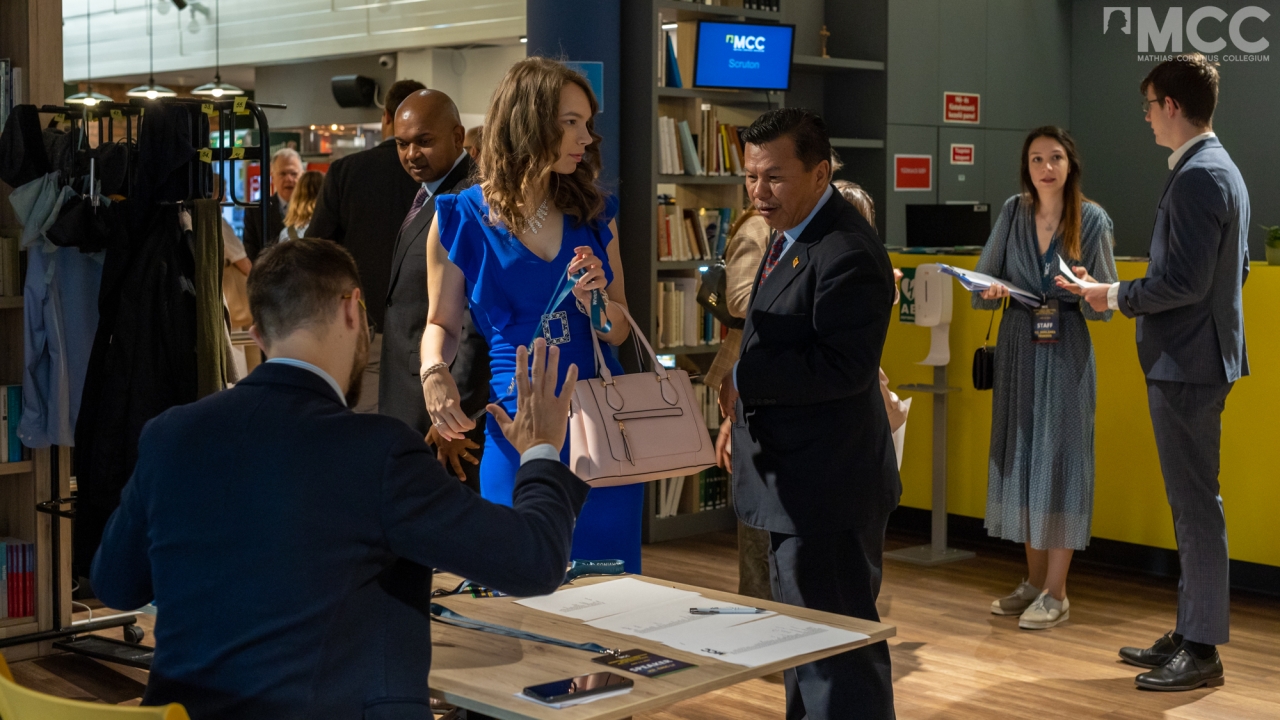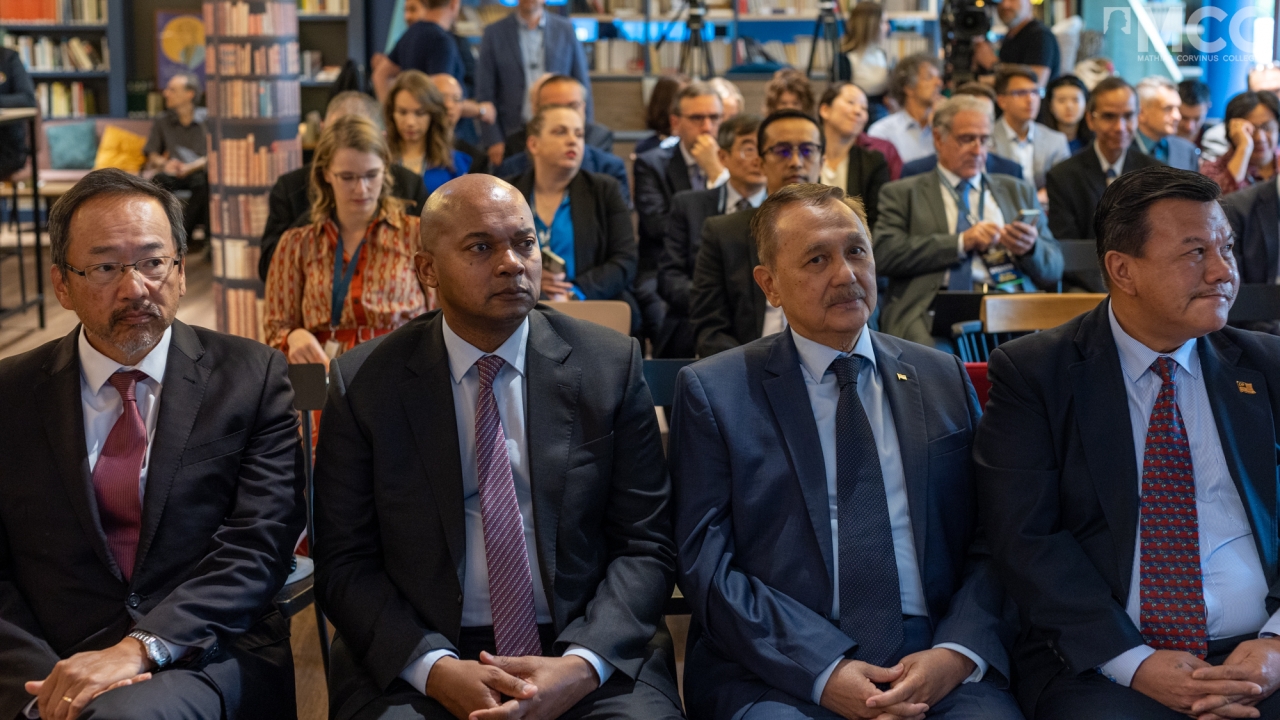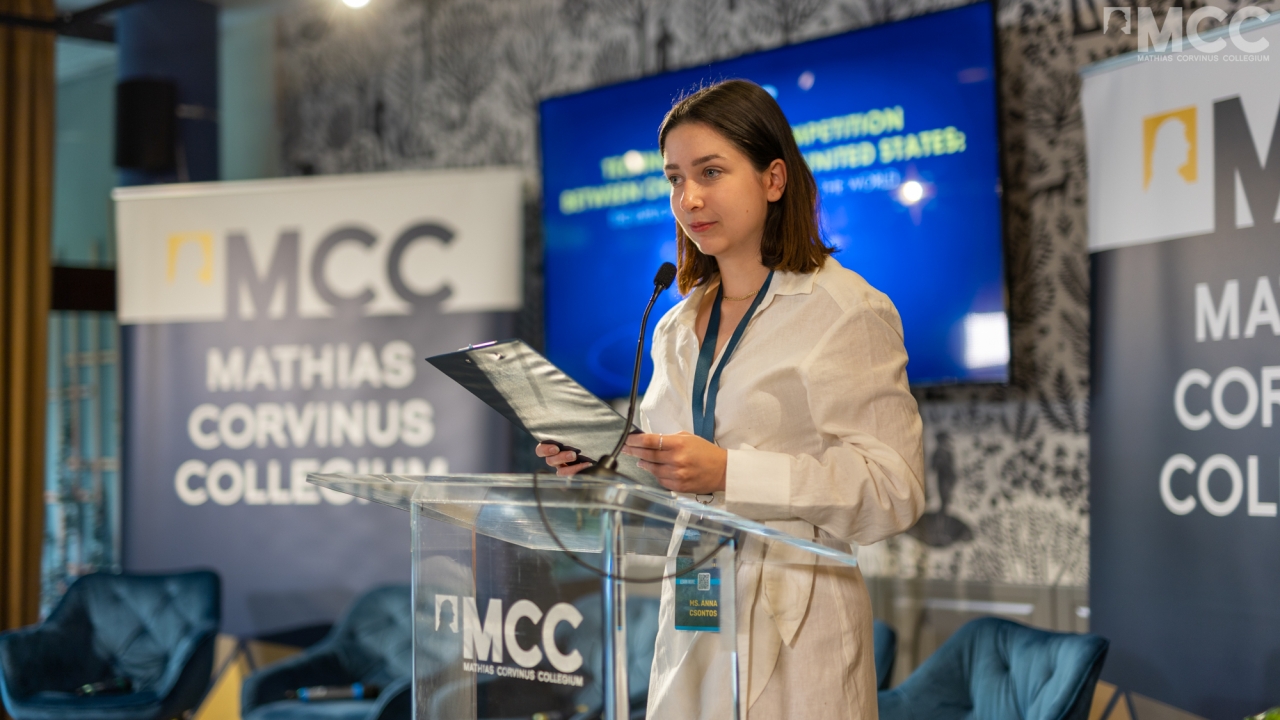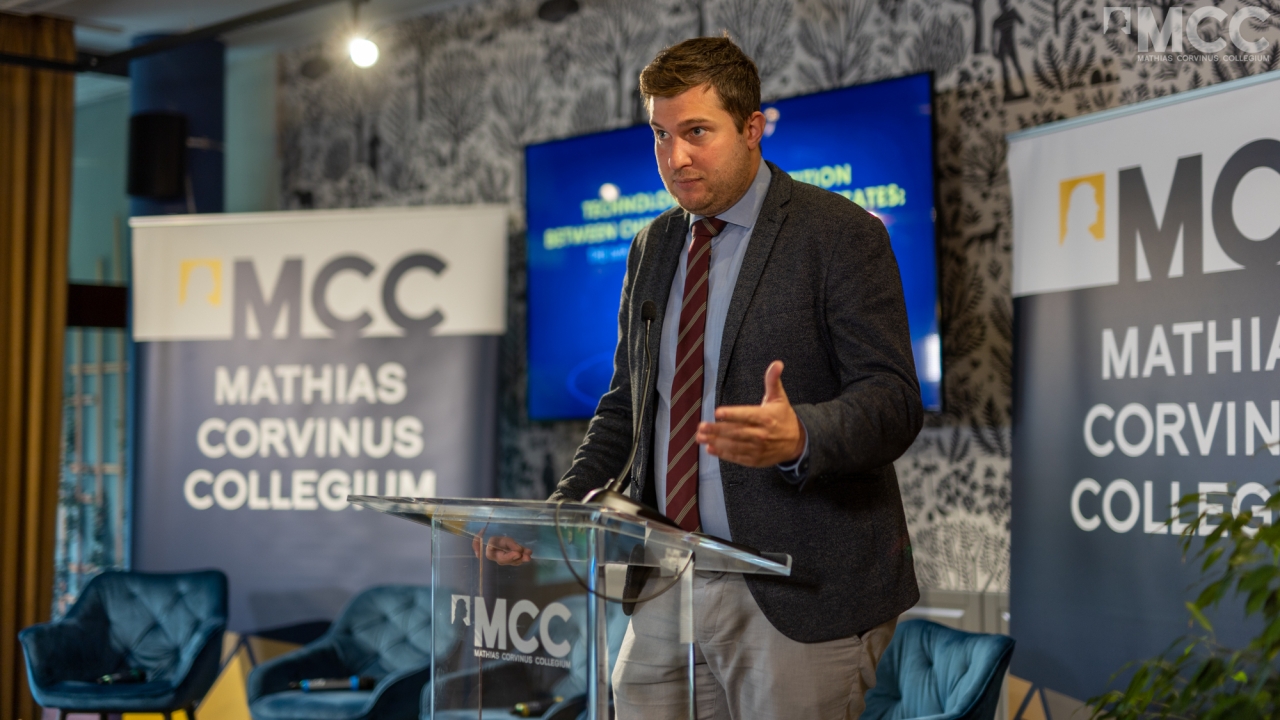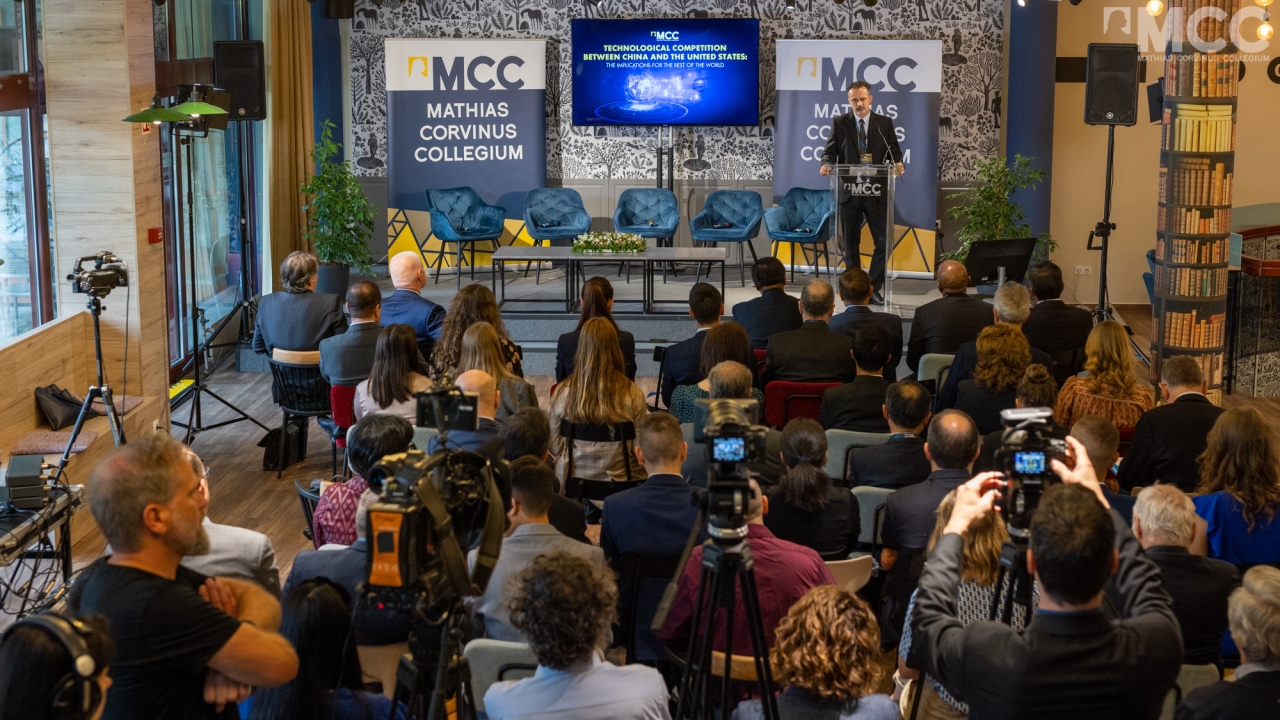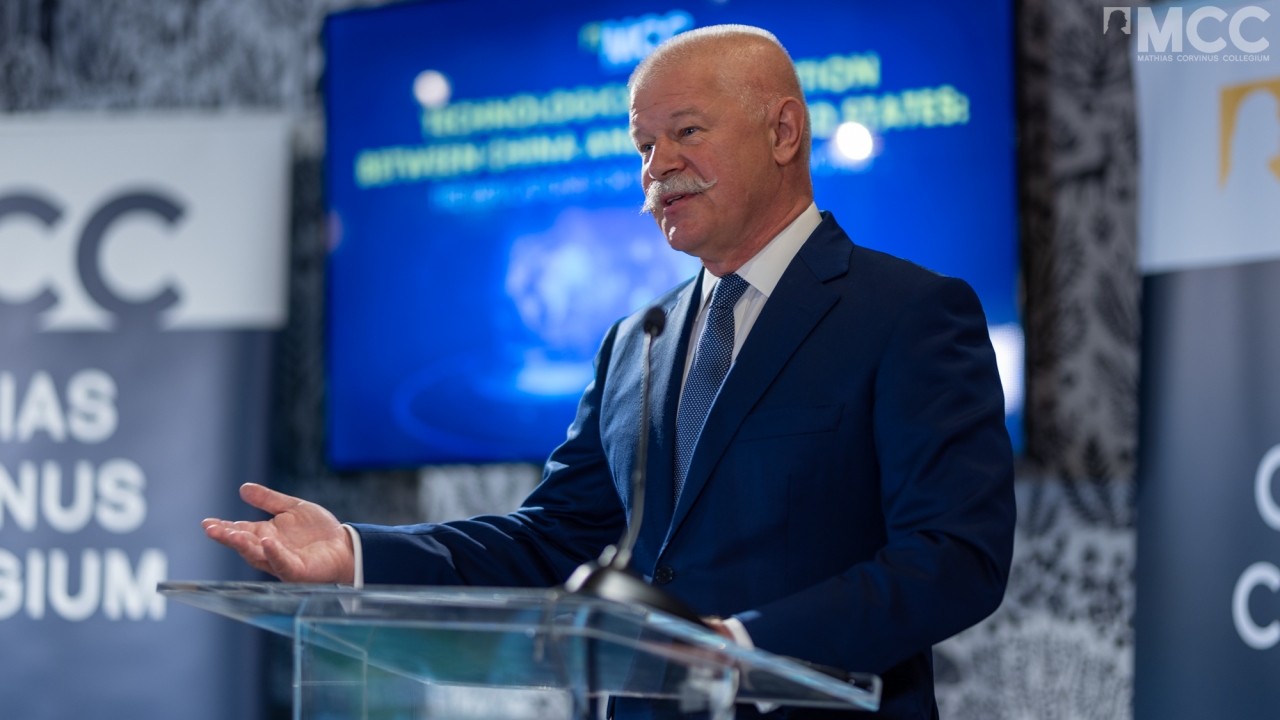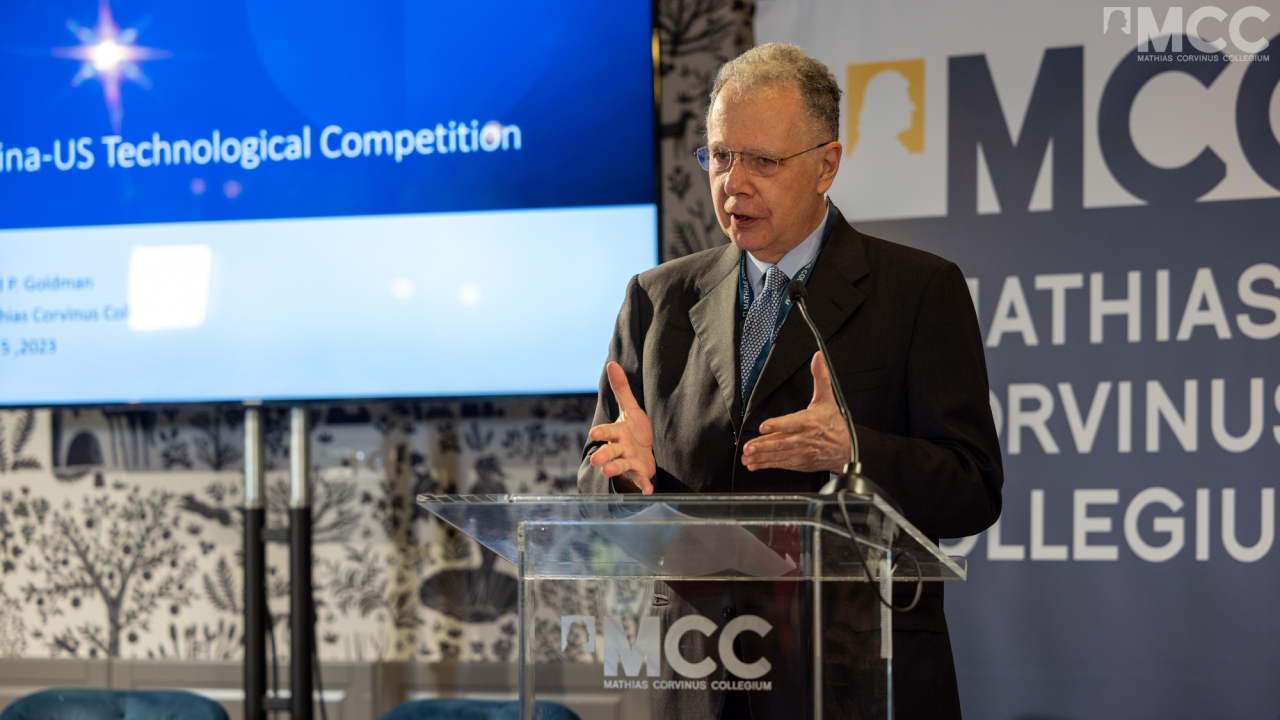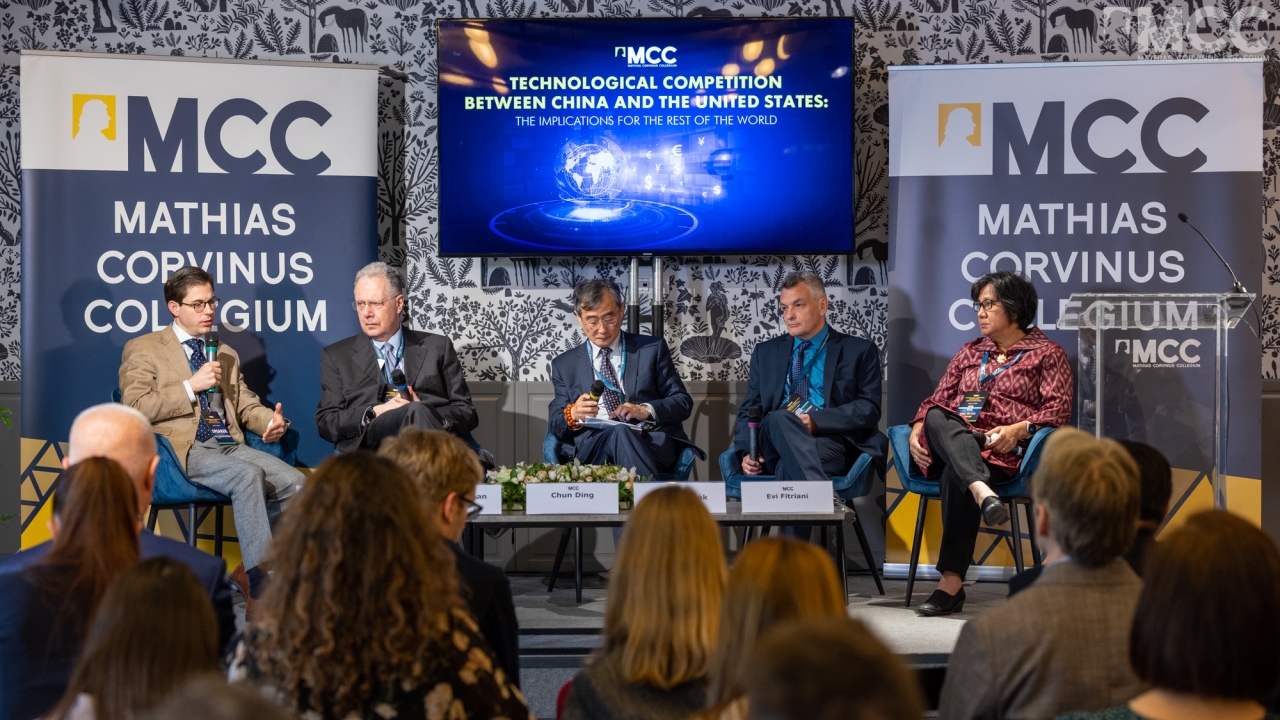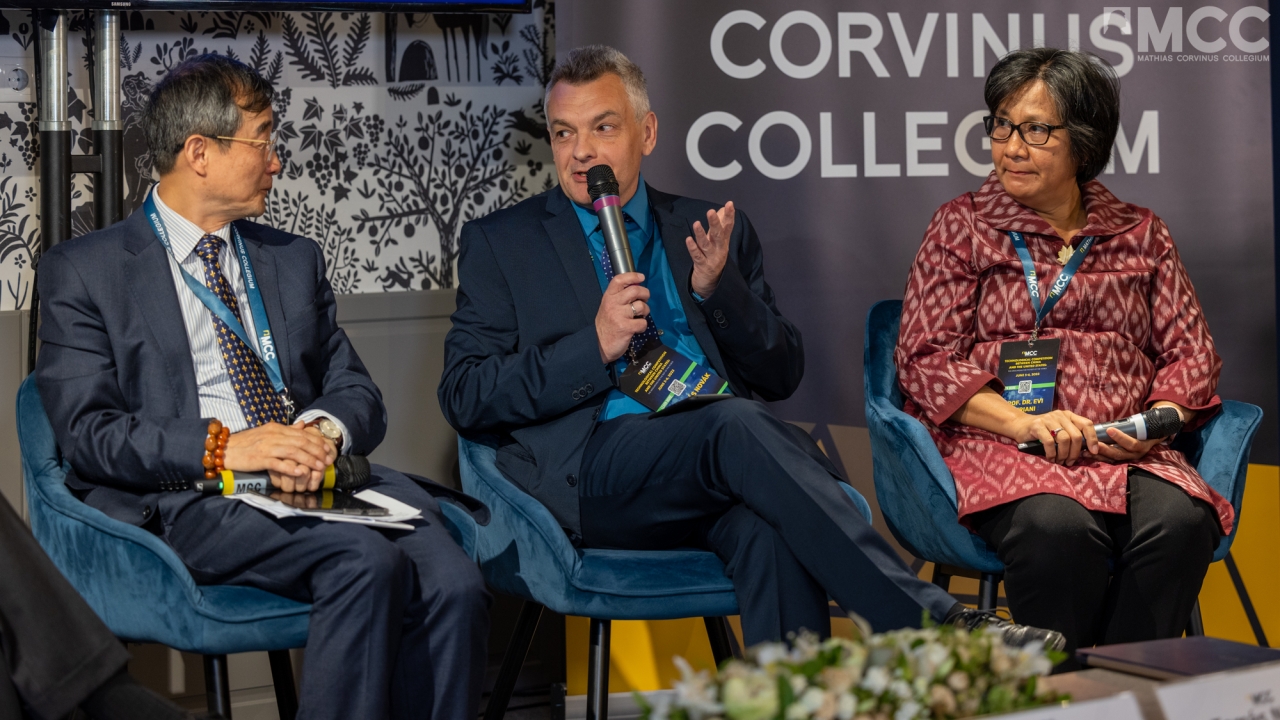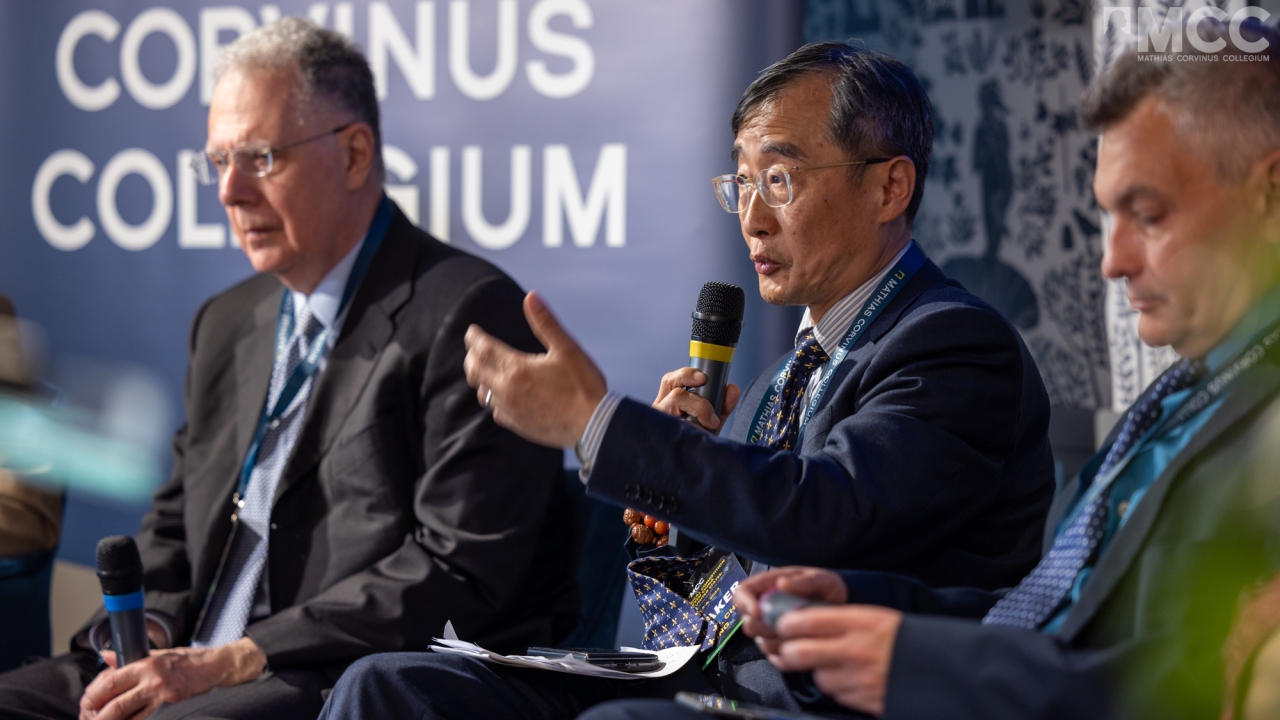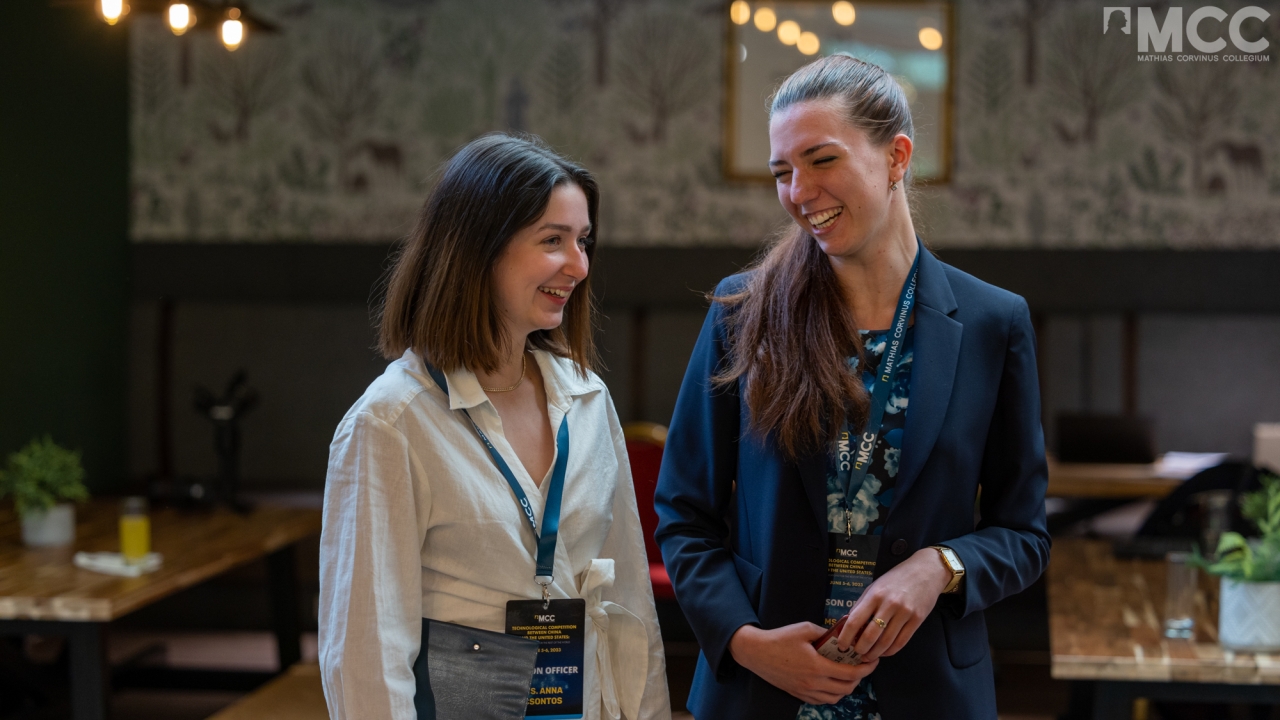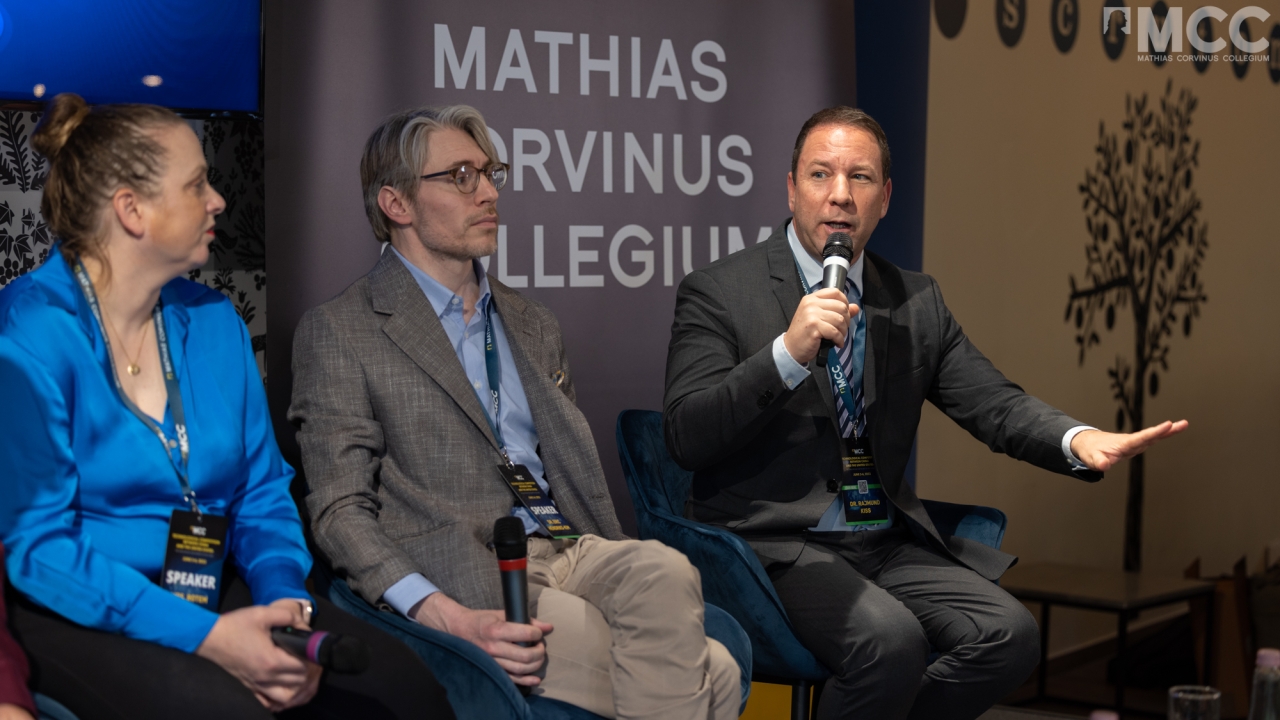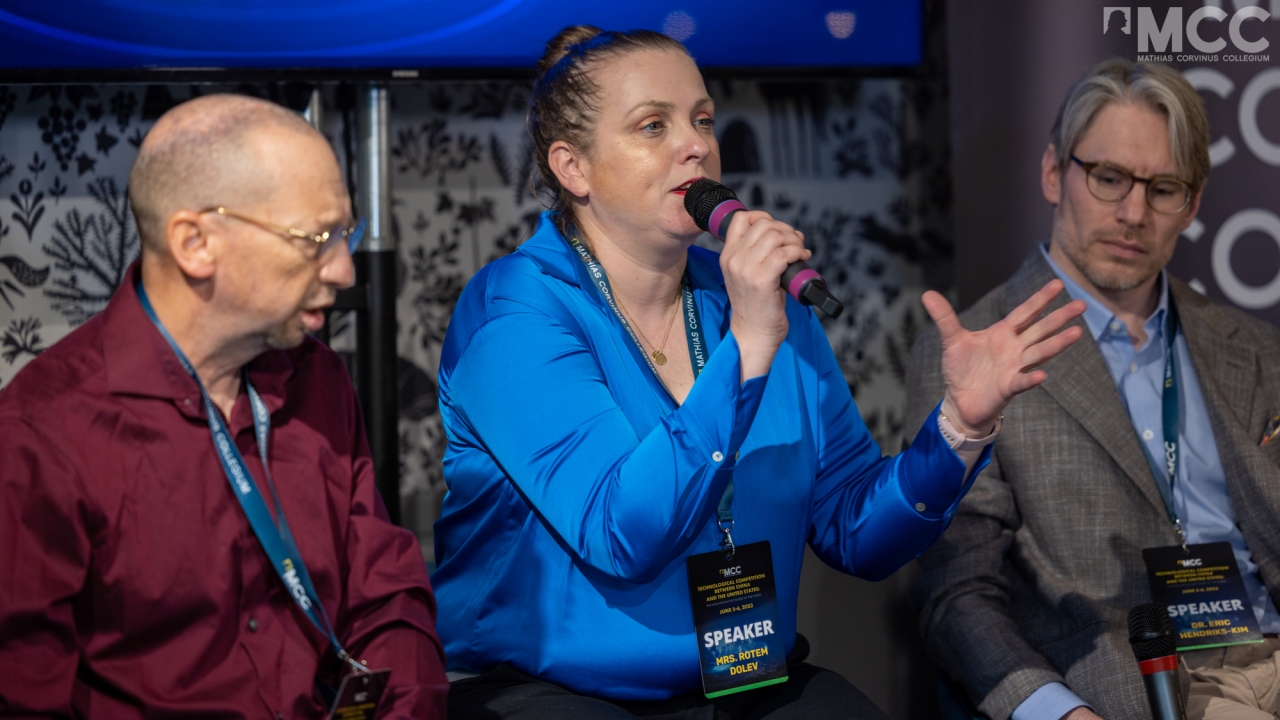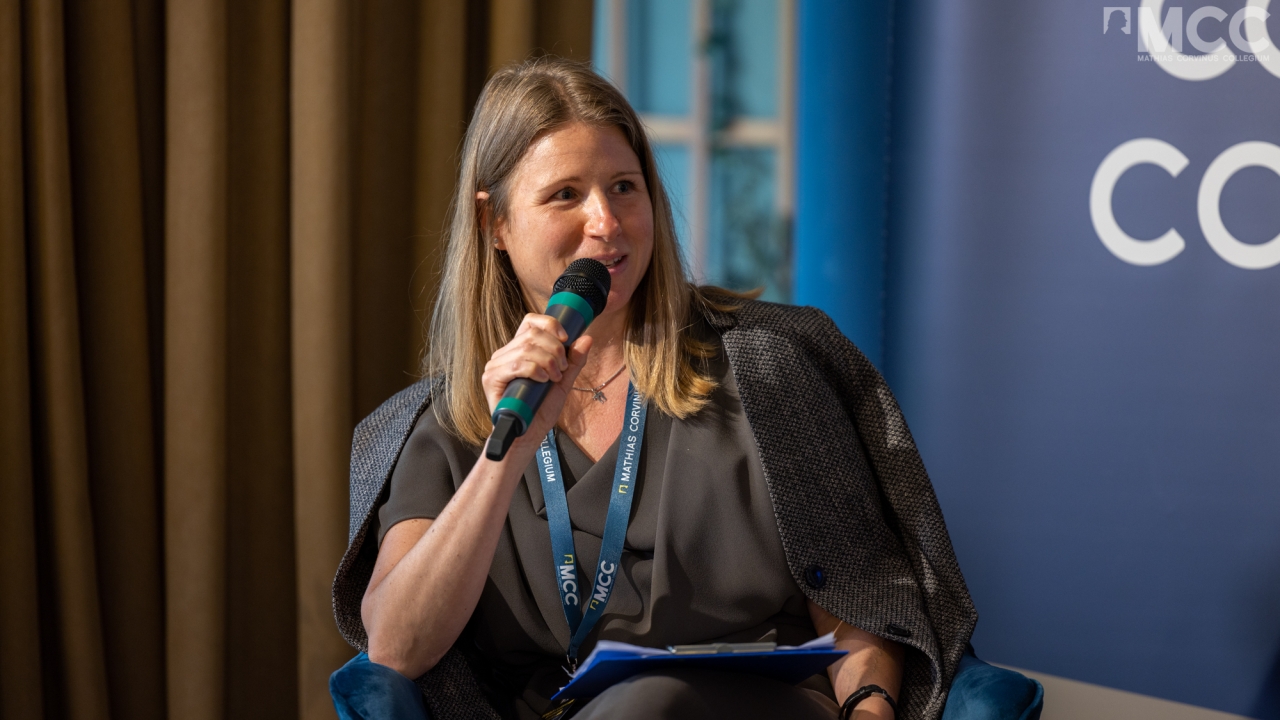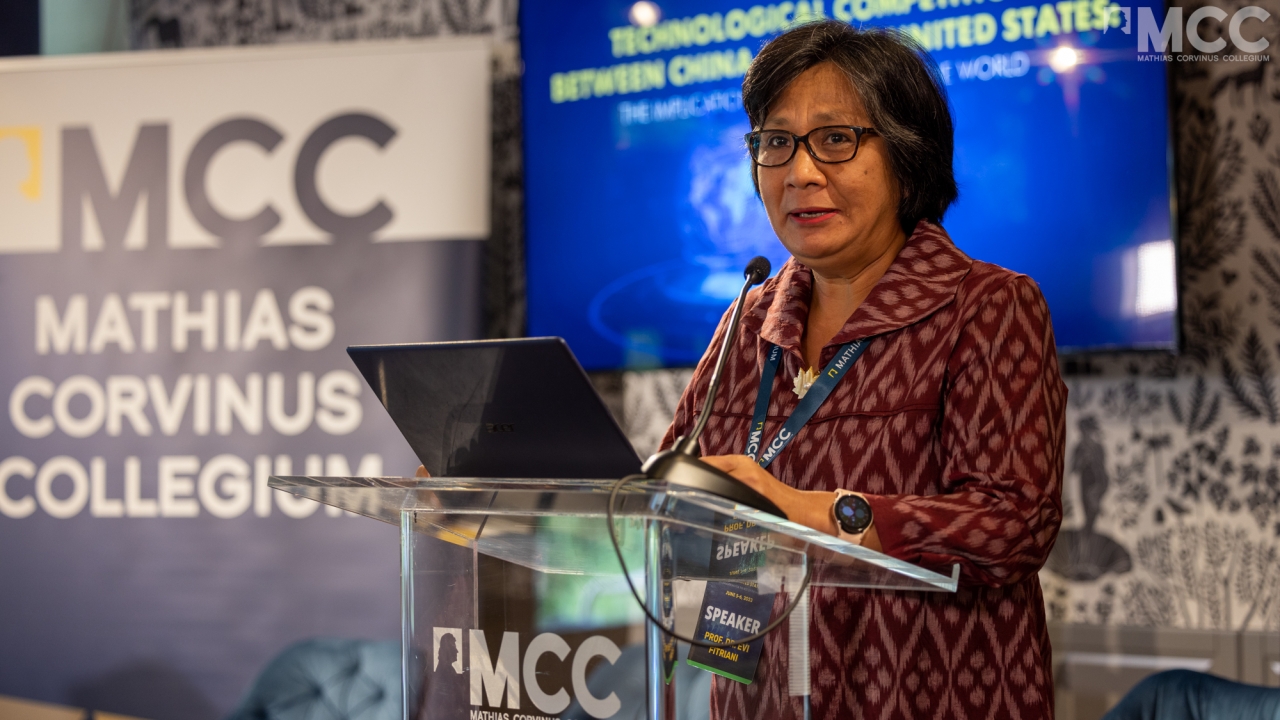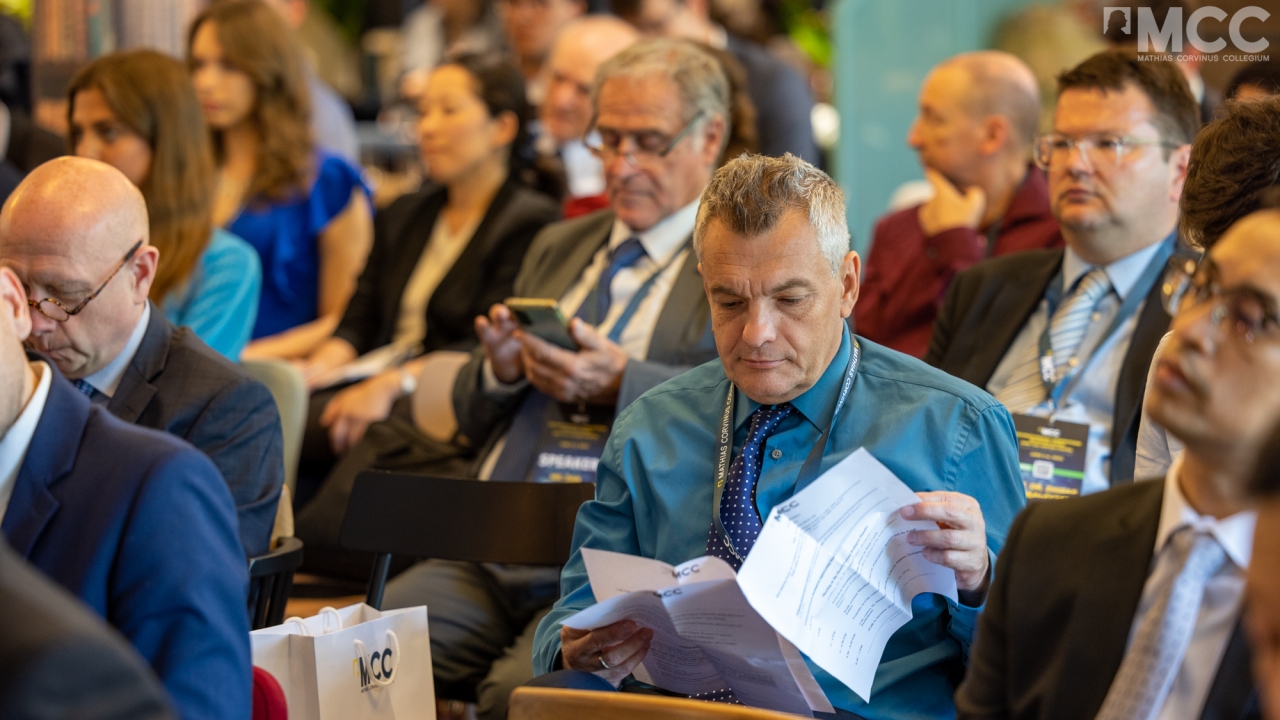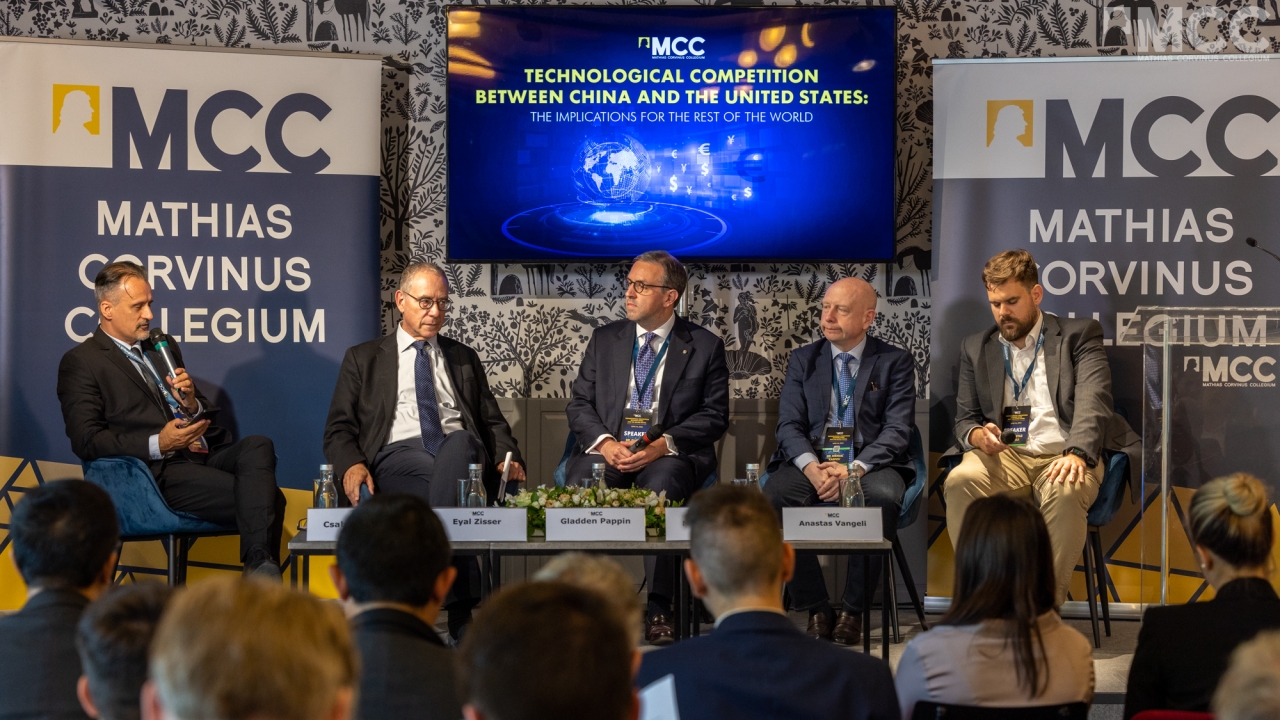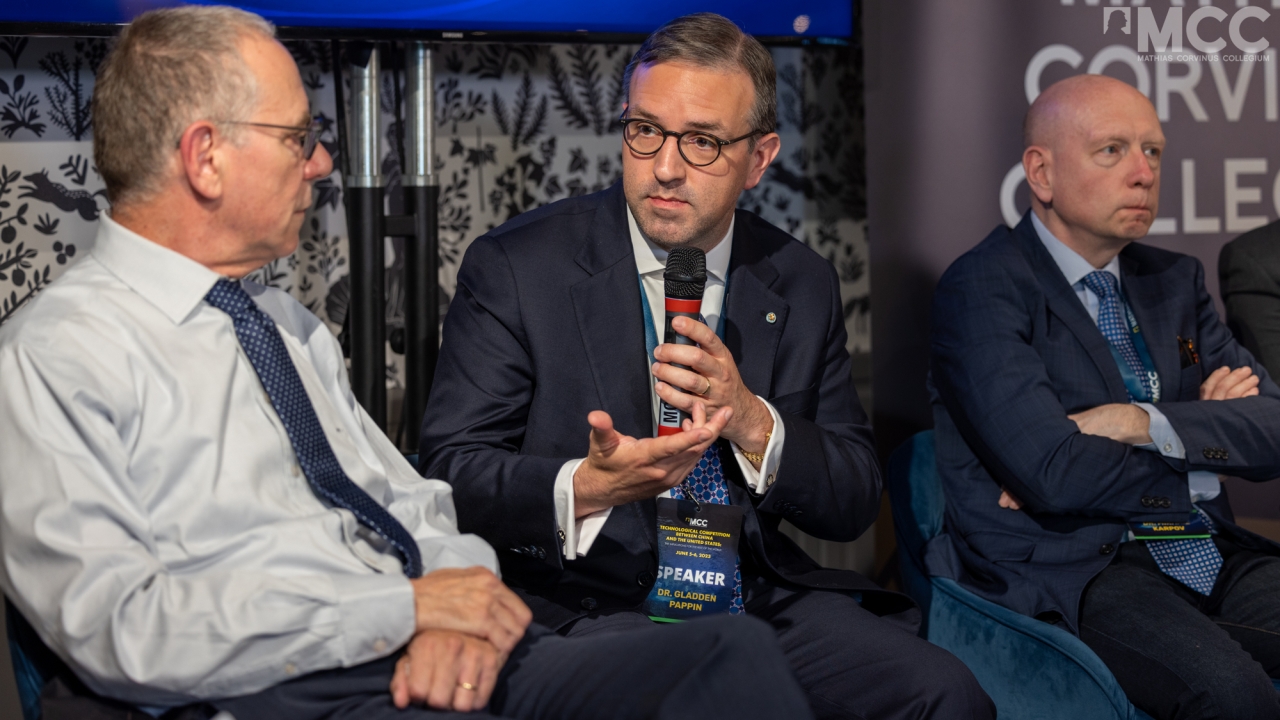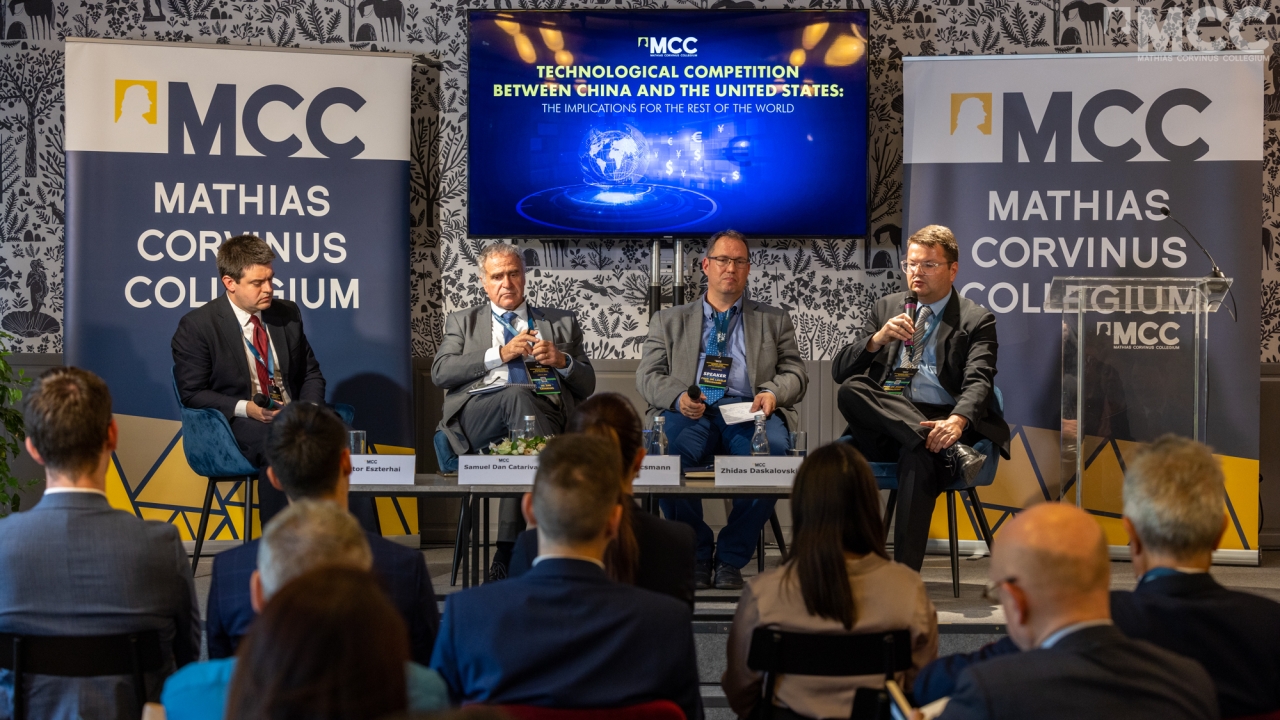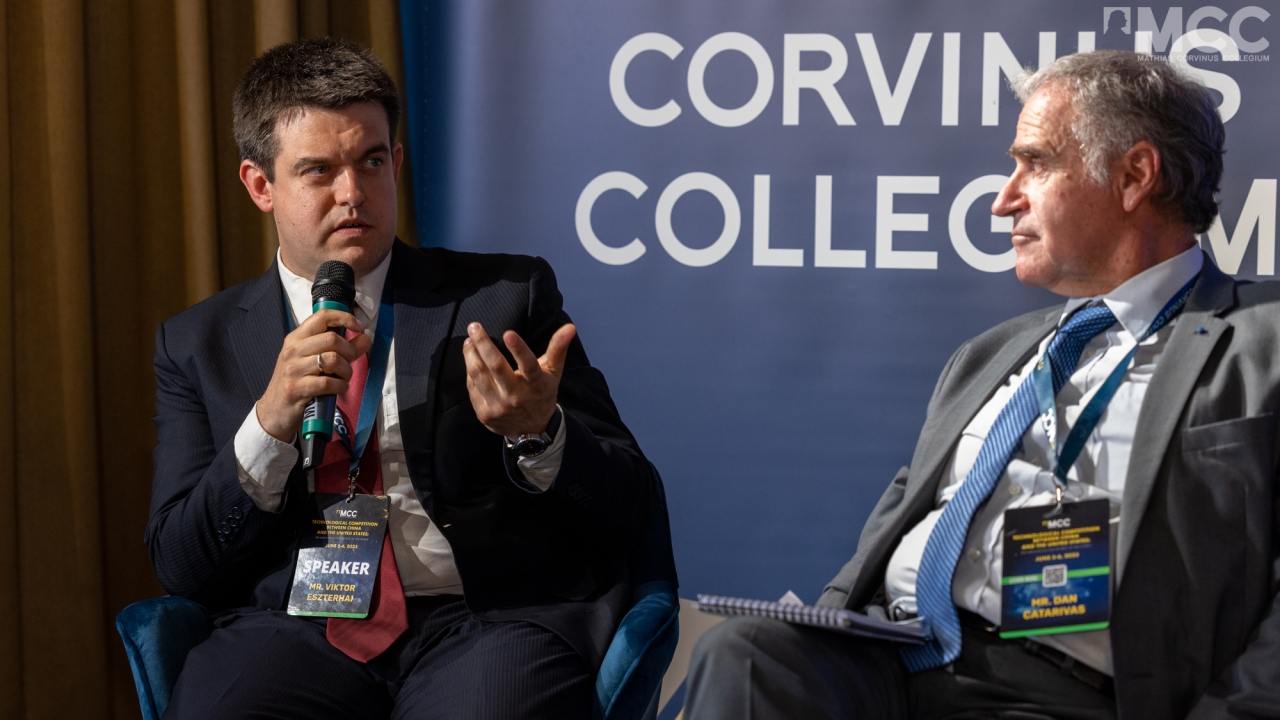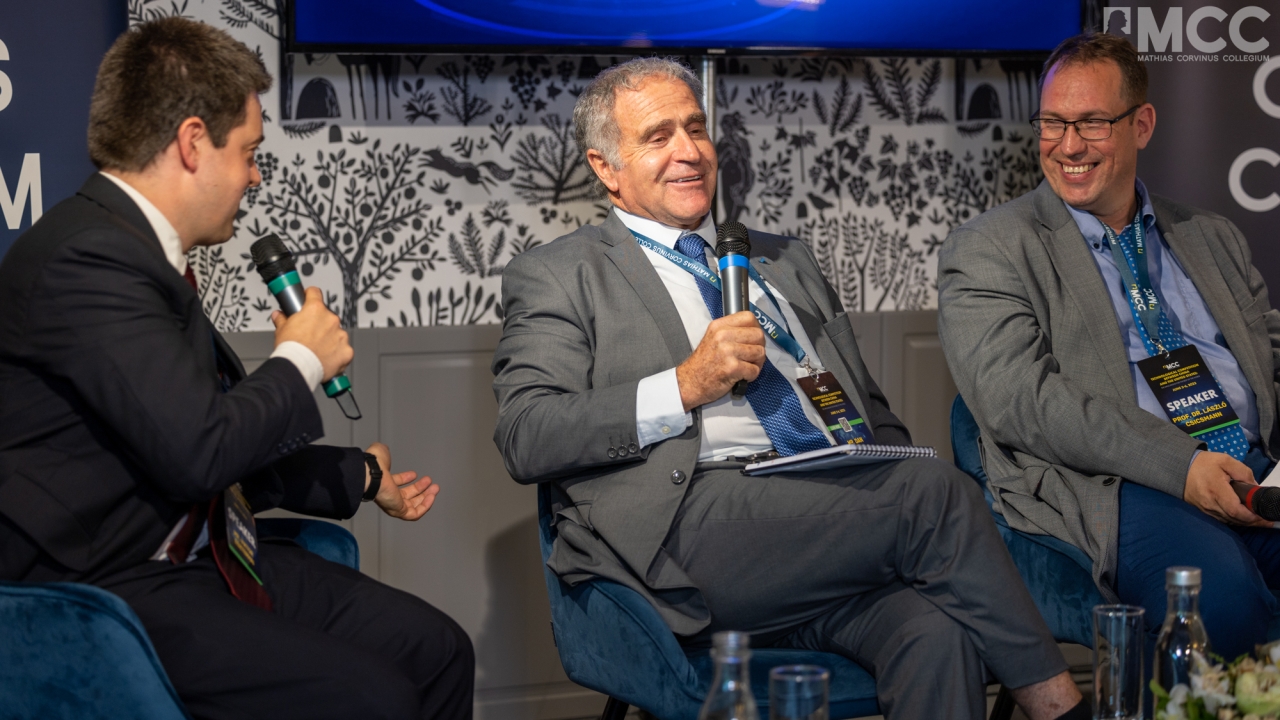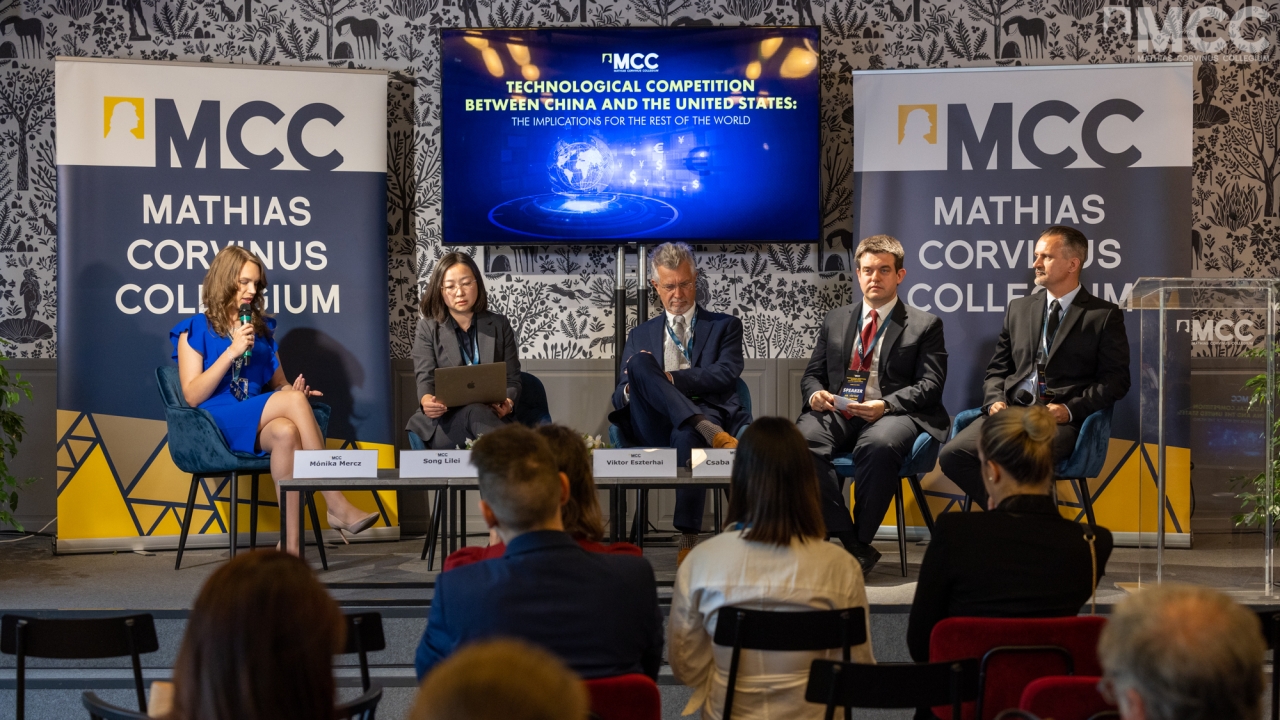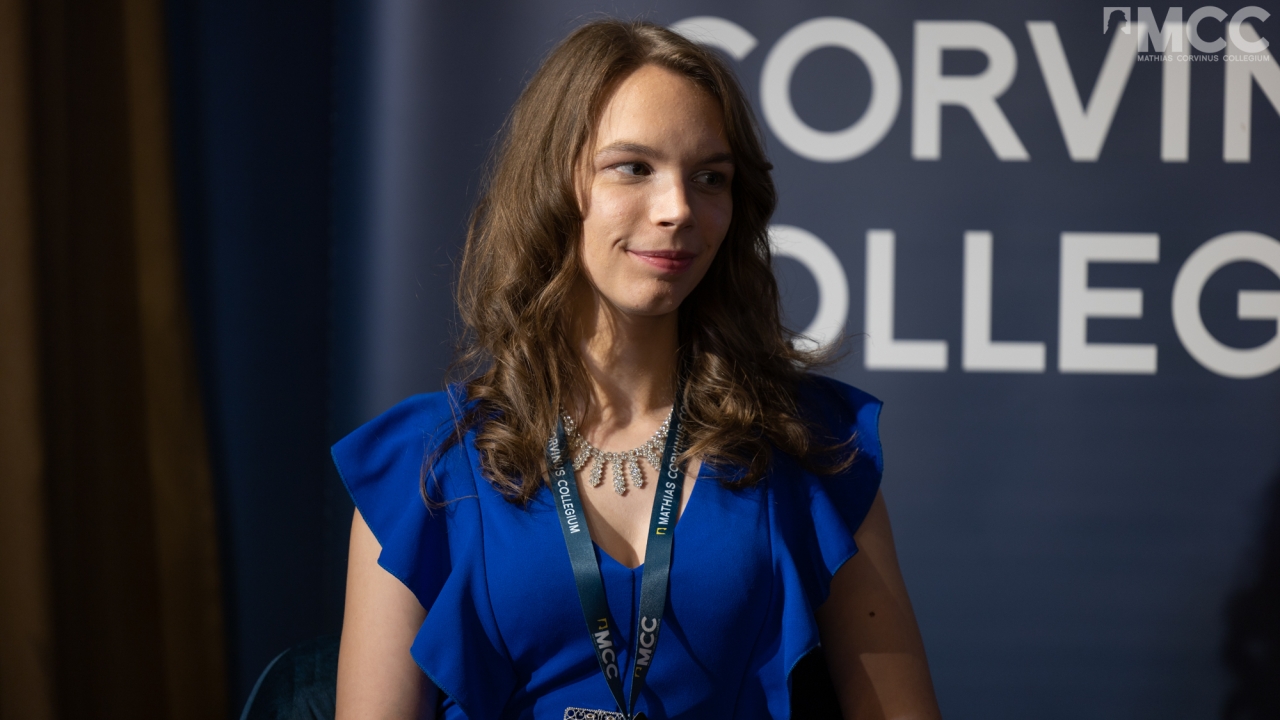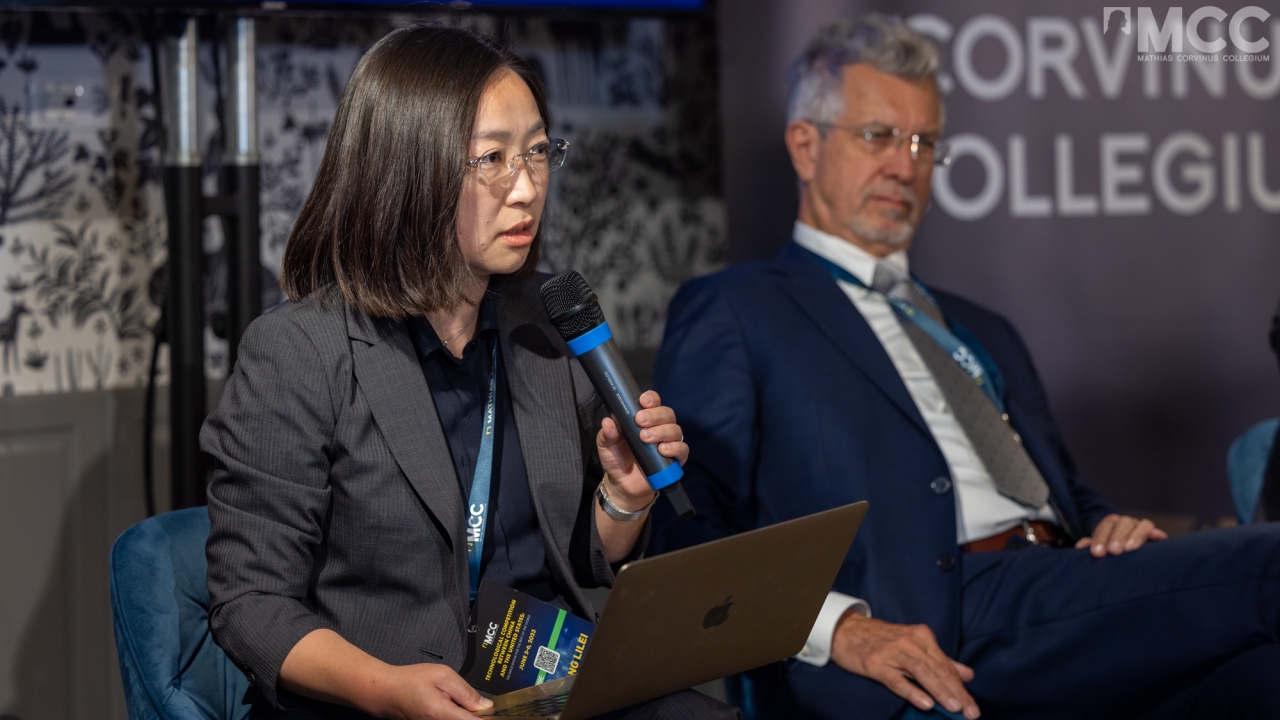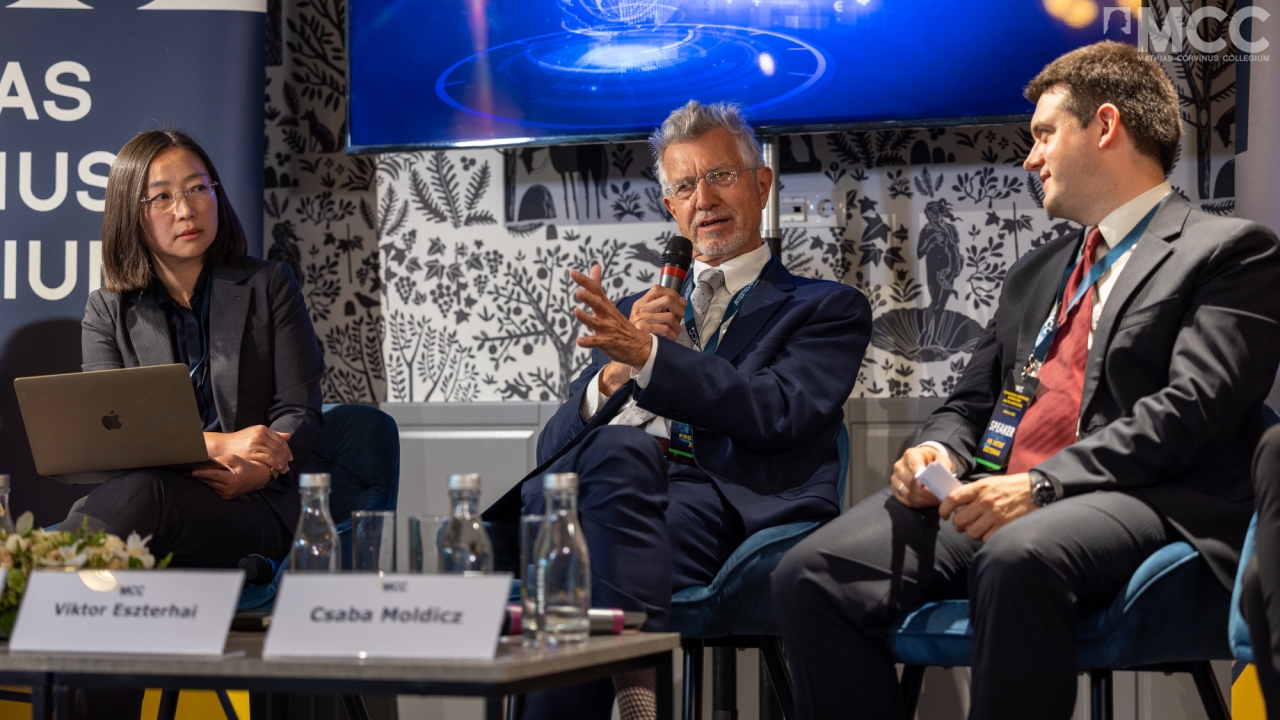Reading time: 3 minutes
Mathias Corvinus Collegium’s international conference on the economic competition between the United States and China was kicked off with a keynote speech delivered by János Csák, Minister of Culture and Innovation. He declared that clear objectives, the ability to protect oneself, and the proper use of "soft power" are prerequisites for success in the global technological competition.
With the technological competition between the United States and China being the focal point of the race for global hegemony, the topic of the conference was both timely and relevant. Furthermore, not only is this competition between two advanced super powers, but it can also be interpreted as a rivalry between two completely different political regimes. As a relatively weak political power, Europe now serves as an ideal battleground for the clashes of these two superpowers.
Péter Lánczi, Deputy Director General of MCC, stressed in his opening speech that Mathias Corvinus Collegium, which now provides free talent development programs for over 7,000 students, has always put great emphasis on organizing events addressing such timely issues. To mention a few examples, the Deputy Director General referenced the upcoming MCC Budapest Summit on the Russian-Ukrainian war and, more recently, the conference on the future of book printing.
In his keynote speech, Minister Csák highlighted that, regarding outward investments, China is still well behind the United States, as the value of outflows as share of GDP in China is less than the half of the value of investments coming from the US. In a scenario where China catches up with the US in terms of GDP, however, it could more than double its foreign investments, added the minister. He also stressed the importance for countries in the technology race to make good use of cultural power, or "soft power", so that they may be able to think ahead, not just react.
David P. Goldman, Corporate Director and columnist at Asia Times, held a presentation detailing how the United States became the world's leading power as well as the rise of China and its global implications. Csaba Moldicz, Head of the School of International Relations at MCC, emphasized the importance of economic diversification, mentioning Hungary's recent "Eastern Opening" policy as an example of successful diversification. The Head of the School stressed “Technology is power, and today cooperation is overridden by competition where participating countries need to increase their capacity to adapt.”
The first panel discussion of the conference explored the American, Chinese and Hungarian aspects of technology competition. Participants included David Goldman, Corporate Director of Asia Times; Chun Ding, Director of the Center for European Studies at Fudan University; Tamás Novák, Science and Technology Attaché at the Consulate General of Hungary in New York; and Evi Fitriani, Professor at Universitas Indonesia. The panelists discussed in detail how the US-China rivalry is affecting their respective regions, citing the spread of Chinese-made electric cars and telecommunications devices as examples. The expert from Indonesia pointed out that products of Chinese manufacturers are gaining ground in her country using favorable pricing. While Csaba Novák highlighted that the two superpowers are mutually dependent on each other and this interdependence can only be overcome at the cost of huge sacrifices.
The two-day international conference also addressed the US-China competition from a diplomatic perspective, as well as relevant issues such as artificial intelligence, electric cars and batteries, and the geopolitical aspect of technological competition.
